BCU strengthens its position on the right of advocate to prioritize cases

In legal practice, it is not uncommon for court hearings in different cases to be scheduled at the same time. This raises the question: which case should the advocate attend first, and can the court interfere with this decision?
In June 2025, an advocate was involved in criminal proceedings as a court-appointed defense advocate in the High Anti-Corruption Court. However, on the date of the next hearing set by the court, the advocate was also scheduled to participate in two other proceedings in the Kyiv Court of Appeals. Therefore, four days before the hearing, he filed a motion with the High Anti-Corruption Court to postpone the hearing, attaching confirmation of his appointment to other cases. He also noted that one of the cases concerned a defendant who was in custody.
However, on the same day, the panel of judges of the High Anti-Corruption Court, without summoning the parties, decided to hold the hearing via videoconference, determining that the advocate should participate remotely from the premises of the Kyiv Court of Appeal. In the reasoning part of the ruling, the court noted that the advocate's notification of his inability to participate was formal in nature and did not contain an explanation of how he had determined the priority of the cases.
The advocate informed the Ukrainian National Bar Association of Ukraine of the court's decision and expressed concern that he could be held disciplinarily liable for failing to appear at the hearing.
The circumstances of the case were considered by members of the Bar Council of Ukraine at a meeting held on October 17-18 in the Lviv region.
In presenting the facts of the case, the rapporteur, a member of the BCU from the Chernivtsi region Anatoliy Telman recalled that, in accordance with Decision No. 169 of December 13, 2019, the BCU noted that the decisive factor in these matters is the exclusive right of an advocate to determine, at his or her own discretion, the priority of various procedures scheduled for the same time, based on factors that may be important or decisive in each specific situation.
During the discussion, members of the BCU noted that the practice of the High Anti-Corruption Court of holding meetings via videoconference is inconsistent and creates risks for ensuring the rights of the defense. Representative of the Rivne region Hanna Lazarchuk noted that in some cases, panels of judges independently decide on VCCs even without a motion from the parties, while in others, they hold a full discussion, hearing the opinions of all participants, including the defendant and the prosecutor. Her colleague from the Khmelnytskyi region Oksana Kadenko added that VCCs in the hands of judges often become a tool of procedural pressure used to limit the procedural capabilities of advocates.
The head of the Secretariat of the UNBA, BCU Vadym Krasnyk emphasized that the practice of law is not limited to participation in court hearings. An advocate can simultaneously perform other professional duties — participate in investigative actions, searches, and provide urgent legal assistance to clients. Therefore, choosing priorities between several simultaneous actions is part of professional judgment.
The Bar Council of Ukraine should strengthen its position on the priority of cases. This point of view was expressed by the President of the UNBA, BCU Lidiya Izovitova noting the risk that a lawyer's choice of case priority could be interpreted as an abuse of procedural rights. She noted that this trend could lead to disciplinary proceedings against advocates for failure to appear in court, even when several hearings are scheduled at the same time.
According to the President of the UNBA, BCU it is the advocate who has the right to independently determine which case is a priority, taking into account the nature of the proceedings, the risks for the client, and other relevant circumstances. At the same time, the advocate is obliged to inform the other court of their inability to attend. She stressed that this is an inalienable right of an advocate and not a disciplinary violation.
In this regard, L. Izovitova proposed to strengthen the decision of the BCU No. 169 and clearly state that such behavior of an advocate cannot be regarded as an abuse of procedural rights.
The full text of the BCU decision on this issue will be published on the UNBA website in the near future.
Popular news
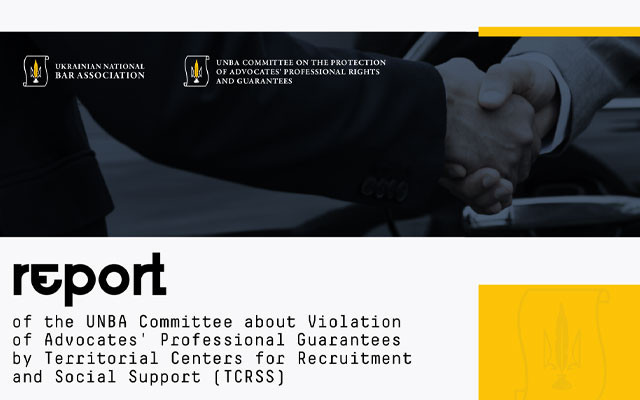
Guarantees of the practice of law
The UNBA presented a report on violations of advocates' rights in the TCC
The Committee for the protection of advocate's rights and guarantees of legal practice of the UNBA has prepared a consolidated report on violations of advocate's professional rights and guarantees of legal practice by territorial recruitment and social support centers for the period from 2022 to the first half of 2025.
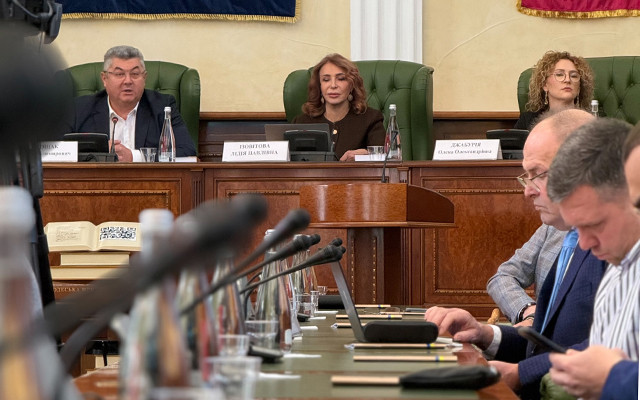
Guarantees of the practice of law
L. Izovitova: today advocacy maintains its independence and fights for guarantees for the profession
The Ukrainian advocacy remains an independent, constitutionally recognized institution of justice, which, in the conditions of war, has not only retained its subjectivity, but also consistently fights for guarantees to protect the profession.

Access to the profession
For candidates for the advocate: BCU has reminded them of the rules for crediting teaching experience
For the purposes of admission to the qualification exam, a candidate's work in scientific and teaching positions may be counted as experience in the field of law only if the position requires legal education.
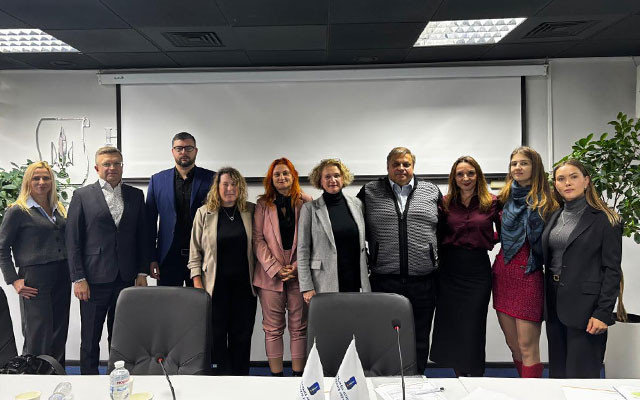
Discussion
Urban Planning Code: what should the new rules for rebuilding Ukraine be?
Does Ukraine need separate codification in the field of urban planning, which model of law to choose, and how to ensure a balance between the interests of the state, communities, businesses, and citizens in the context of post-war reconstruction?
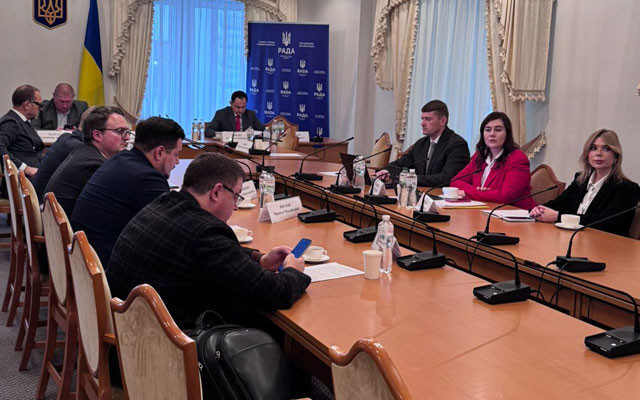
Guarantees of the practice of law
The Verkhovna Rada took another step towards ratifying the Convention on the protection of the profession of advocate
On November 5, the Verkhovna Rada held a working meeting dedicated to the translation of the Council of Europe Convention on the protection of the profession of advocate for its subsequent signing and ratification. The issue was initiated by the Ministry of Foreign Affairs, which drew attention to the key term «lawyer» in the international treaty.
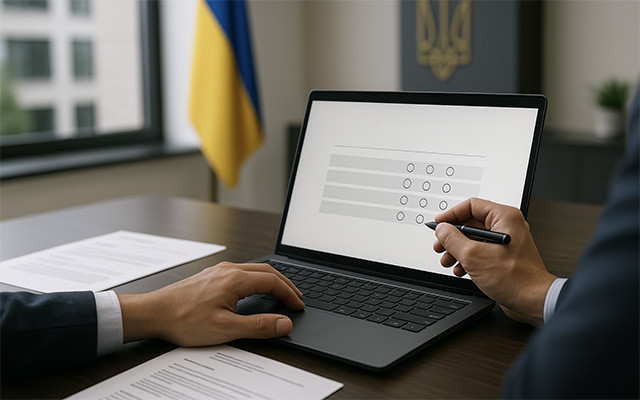
Interaction
NACB is looking for corruption risks in its activities. Advocates are asked to help
The National Anti-Corruption Bureau of Ukraine has launched a survey aimed at gathering information to identify corruption risks in the activities of the National Bureau and prepare an Anti-Corruption Program for 2026–2028.
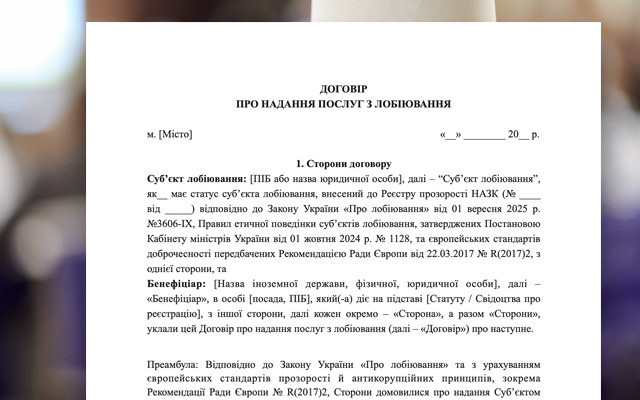
Interaction
Agreement on the provision of lobbying services: a template for advocates has been developed by the UNBA
The Ukrainian National Bar Association has prepared a model agreement for the provision of lobbying services that complies with the requirements of the relevant law and takes into account the specific features of such activities carried out by persons providing legal assistance.
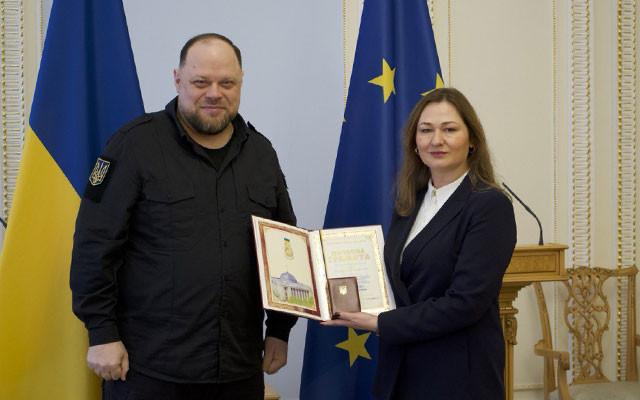
Greetings
Nana Bakayanova awarded with the Certificate of honor of the Verkhovna Rada of Ukraine
Nana Bakayanova, head of the Department of judicial, law enforcement and advocacy organizations at the Odessa Law Academy and secretary of the disciplinary chamber of the Odessa Region Qualification and Disciplinary Commission, received a Certificate of honor from the Verkhovna Rada of Ukraine.
Publications

Censor.net Protecting advocates – protecting justice: addressing concerns about the new law

Ihor Kolesnykov A BRIEF SUMMARY REGARDING THE APPLICATION OF THE ORDER ON EXTENDED CONFISCATION IN LATVIA REGARDING FINANCIAL ASSETS OF…

Valentyn Gvozdiy WORKING IN A WAR ZONE

Lydia Izovitova Formula of perfection

Sergiy Vylkov Our judicial system is so built that courts do not trust advocates

Iryna Vasylyk Advocacy in the proclamation of Independence of Ukraine

Oleksandr DULSKY When we cross the border of the Supreme Anti-Corruption Court, we get into another department of the National Anti-Corruption…

Vadym Krasnyk The UNBA will work, and all obstacles and restrictions are only temporary inconveniences
